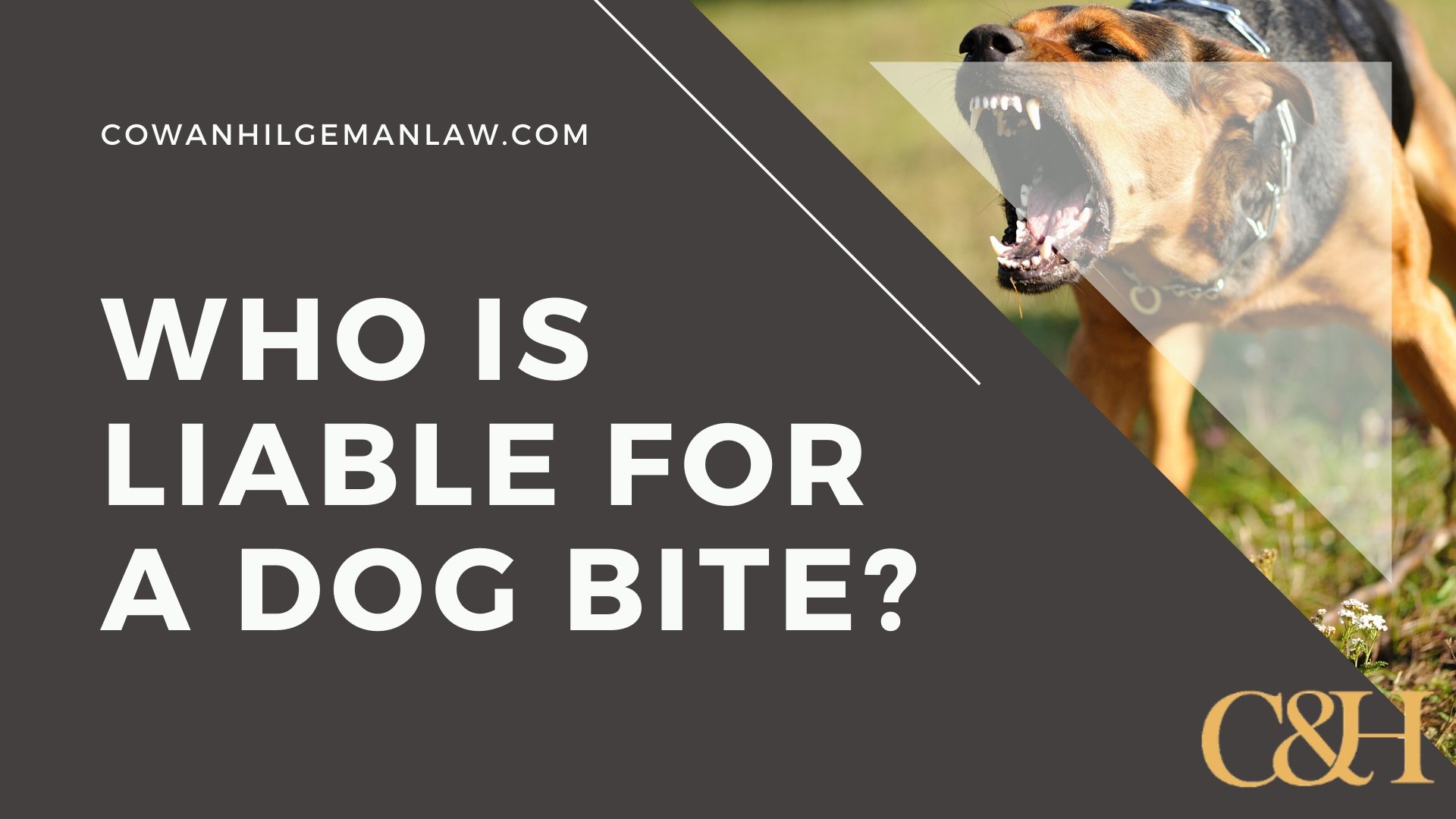Who is Liable for a Dog Bite?
Ohio law holds dog owners strictly liable for a dog bite, providing the injury occurred under certain conditions:
- The injured person was not committing (or trying to commit) a crime
- The injured person was not trespassing
- The injured person did not tease, torment, or abuse the dog in order to provoke it.
To make a successful claim against the owner, handler and/or keeper of a dog, one does not have to prove that the dog has a prior history of aggression. In other words, the dog could be the sweetest thing on earth with a kind, responsible owner, and this could be its first and only act of aggression - It does not matter. The owner may still be held liable for its bite.
Negligence
Further damages may be awarded if the owner knew about the dog's propensity to bite or act aggressively, yet the dog was allowed opportunity to attack anyway. Fault can be proven in the following ways:
Breed and Size of Animal: Generally, the larger the animal, the greater the chance that the animal can cause injury. The species and breed of an animal may also be relevant if you can prove that, as a general rule, that breed is more likely to cause serious damage due to physiology (such as a pit bull or Rottweiler, both of which are bred for higher bite force).
Purpose for Which the Animal is Kept: If an animal is kept for protection and is trained to attack unknown people, it can be inferred that its owner knew or should have known it might attack someone.
Frequent Snapping and Biting: A history of aggressive behavior can be used to demonstrate that the owner had knowledge of the animal's vicious tendencies.
Complaints Brought to Owner's Attention: If people previously complained to the owner and the owner did nothing or didn't do enough to prevent future attacks (such as higher fencing and training), this can be used as evidence that the owner knew the animal could be dangerous.
Fighting with Other Animals: Even if an animal had not attacked a human before, if it had fought with other animals, this may be useful in proving its vicious nature.
Frequent Confinement of the Animal: If the owner keeps the animal locked in a cage, on a tight leash or chain, this may indicate the owner's awareness that the animal might be dangerous.
Occasional Muzzling of the Animal: If an owner muzzles an animal on walks or at times when people are near the animal, this can be proof that the owner is aware of the animal's dangerous nature.
Warning Sign on Owner's Premises: If an animal owner puts up warning signs (such as "Beware of Dog"), an injured person can use this fact to establish the owner's knowledge of the animal's viciousness.
Statements by Owner as to Animal's Character: Any statements made by the animal's owner concerning past bites, fights, or aggressive behavior are relevant to the owner's knowledge regarding the likelihood of future attacks.
Owner's Warnings to Strangers About Animal: Verbal warnings to others potentially show that an owner is worried that the animal might cause harm to others.
The owner may be found liable for battery if they ordered the dog to attack someone without just cause, such as for self-protection or to foil a crime in progress. Criminal charges may also arise from an unprovoked, ordered attack that results in grievous bodily injury or death.
How Long Do I Have to File a Lawsuit Following a Dog Bite?
In Ohio, you have two years from the date of the bite to file a lawsuit against the dog's owner, handler and/or keeper.
If you or a loved one has been bitten by a dog in Ohio, do not hesitate to call the experienced dog bite attorneys at Cowan & Hilgeman Law. Call (937) 222-2030 to schedule your FREE consultation.

